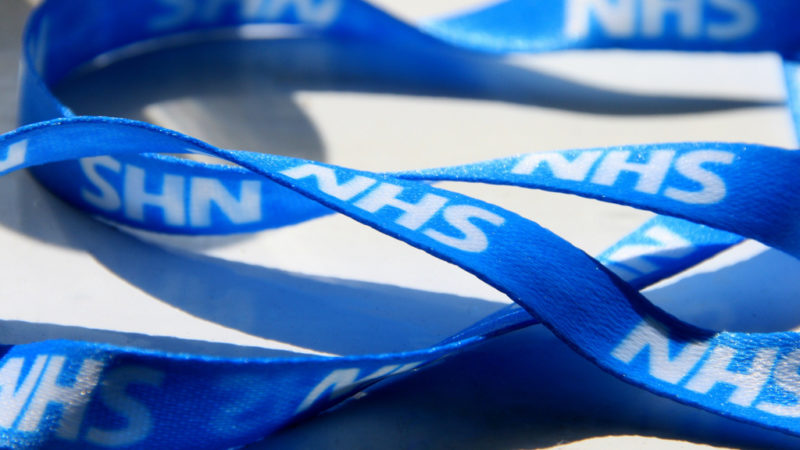More nurses are leaving the profession than joining - for the first time in history, suggesting a major staffing crisis is on its way.

More nurses and midwives are leaving the health sector than joining it for the first time in history, a stark new report from the Nursing and Midwifery Council (NMC) found this week.
Between 2016 and 2017, 20 per cent more nurses and midwives left the service register than joined it, the report from the industry’s professional regulator said.
The NMC noted that the net outflow of nurses and midwives from the profession began in the last five years.
The decline was most pronounced for nurses and midwives registered as UK citizens: between 2016 and 2017, 45 per cent more UK registrants left the NMC than joined it.
The fact that UK nurses and midwives are joining their European colleagues in leaving the professions (since Brexit there’s been a 92 per cent drop in EU nationals registering as nurses in the UK) is extremely worrying.
UNISON head of health Sara Gorton commented on the report: ‘as predicted, with both U.K. and EU nurses leaving, the NHS is heading towards a serious staffing crisis. Currently, the UK simply isn’t training enough nurses to make up for those who are leaving. Scrapping the bursary and introducing tuition fees have only made matters worse.’
‘Many organisations, including the NHS pay review body have warned that the pay freeze was not sustainable. Nurses and midwives’ pay has been held down for too many years despite demand for their expertise growing. So it is no surprise they are leaving the NHS.’
Not only are nursing and midwifery ‘widely acknowledged as ageing professions, with significant numbers on the register coming up to retirement age’, reads the report, but ‘the figures show that people below retirement age are leaving in increasing numbers’.
A survey conducted by the regulator earlier this month of those leaving the professions gave some indication as to why this outflow is occurring.
Of 4,500 nurses and midwives interviewed, 44 per cent cited working conditions (including issues such as staffing levels) as their main reason for leaving; and 27 per cent said disillusionment with the quality of care provided.
The report adds succour to the argument that NHS staff are abandoning their professions due to a freeze on public sector pay increases, poor working conditions and general underfunding of the health service by the government.
The NMC report appears to provide statistical support to the prediction of many healthcare bodies that the NHS will face a major staffing shortfall and crisis of care by 2020, where the health service would be short of up to 40,000 nurses.
The hole the government is digging NHS staffing into is further highlighted by the scrapping last year of bursaries for trainee nurses and midwives; in one year alone since the bursaries were abolished, nursing and midwifery courses at universities have reported a 23 per cent drop in applications.
If our national health service is to survive even the next into the next decade, urgent action is required to retain existing healthcare staff and train and recruit new ones. A start would be to raise the pay cap, invest in recruiting new staff and reinstate the nursing and midwifery bursaries.
Oscar Webb is a reporter at Left Foot Forward. He Tweets here.
Left Foot Forward doesn't have the backing of big business or billionaires. We rely on the kind and generous support of ordinary people like you.
You can support hard-hitting journalism that holds the right to account, provides a forum for debate among progressives, and covers the stories the rest of the media ignore. Donate today.




2 Responses to “Nurses and midwives are leaving the health service in droves”
patrick newman
8 years of freezes and caps on pay is really bad but not the biggest problem. It is the fundamental and deliberate underfunding of public services creating worsening crisis in almost every part of the public sector, but most dramatic in health and social services. In a way the pay question is performing a role in the distraction from this under funding which is causing the terrible social crisis unfolding in the UK. Our public sector is locked into a vicious spiral of decline.
Wendy Rivett
I left the health service after44 years service I left when I could not climb the stairs of a block of flats carrying equipment in order to carry out my assessment as a health visitor.
I considered my pay adequate as I didn’t enter nursing to become rich. There is a glaring disparity in pay though, between the nursing management who I considered to be less than adequate and the hands on workforce. There is a glaring waste of money and the people who make decisions are not accountable for their action, they just move side wards and continue to repeat the same actions. The workforce should consider their in work benefits as well as pay i.e. Being allowed a year off sick with full pay for 6 months and 6 months half pay.and 33 days holiday and little action taken to address their suitability for the job. Believe me the gilt edged pension is a myth too. I’m just pleased I am a product of the fifties and probably have more resilience than most having lived through the 3 day week, strikes,and successive health ministers. I have no doubt that the NHS will not be here for me in my hour of need and so I will have to arrange my own exit strategy.